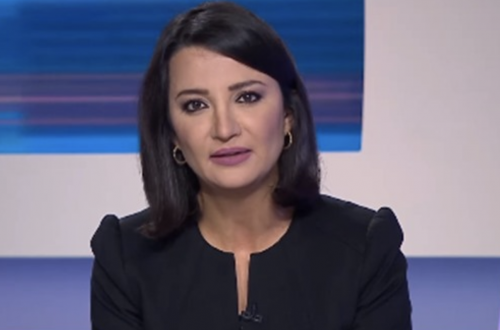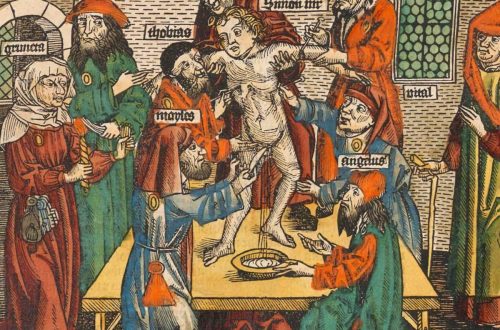Trevor Phillips’ report (it’s behind a paywall but there’s some commentary here) on a new survey of British Muslim opinion may prompt the response ‘I told you so’ from Islam’s fiercest critics and Islamists alike. It suggests that Islam is qualitatively different from other religions, and Muslims correspondingly different from other immigrant/minority communities. Phillips cautions that wishful thinking has led people to assume that Muslims are – or soon will be – indistinguishable, a few details aside, from the non-Muslim majority. The reality, he argues, is that this isn’t going to happen.
The data collected by the respected research firm ICM shows what the polling experts call “a chasm” opening between Muslims and non-Muslims on such fundamentals as marriage, relations between men and women, schooling, freedom of expression and even the validity of violence in defence of religion. And the chasm isn’t going to disappear any time soon; indeed, the gaps between Muslim and non-Muslim youngsters are nearly as large as those between their elders.
Sometimes it is suggested that young Muslims have even more conservative views than their elders, so it’s something that the gap is at least narrowing just a little.
Phillips’ article only deals with a few of the flashpoint issues in detail – Wednesday Channel 4 programme will presumably reveal more. Here are the findings on homosexuality:
More than half of the sample reported that they believe that homosexuality should be illegal. Even more opposed gay marriage, and nearly half thought that it was unacceptable for a gay person to teach their children.
…
Homosexuality should be legal in Britain — 18% agree (strongly agree 8%, tend to agree 10%) and 52% disagree (strongly disagree 38%, tend to disagree 14%)
It should come as no surprise that Muslim liberals are in despair. They knew all of this long ago.
This is much clearer, I think, than other polls which have asked rather vaguer questions about attitudes towards homosexuality. (It is perfectly possible to believe homosexuality a sin while supporting full civil rights.) I wish the results were different. Of course not all non-Muslims have liberal views on this issue either. A 2014 poll found that 16% of Britons want homosexuality to be illegal.
After reading Phillips’ article I tried to find out how religious non-Muslims viewed this issue. I thought the results would mitigate his findings, but in fact according to one poll Hindus and Sikhs are more inclined to support gay marriage than the UK population as a whole.
There has been much discussion of the relationship between Muslims and ‘Britishness’. This poll goes beyond asking whether Muslims feel British and like living in the country. Generally they do. However – and this is the kind of point liberal commentators would like to wish away – what some Muslims like about Britain is the way it enables them to live somewhat separate lives. 23% would like to see Sharia law introduced in some areas of Britain instead of British law. So we aren’t, presumably, just talking Sharia councils.
Here’s a section on mixing.
But while Muslims clearly like Britain, many are not as enthusiastic about their non-Muslim compatriots. Levels of intermarriage are extremely low compared with other minorities: according to the ONS, fewer than one in 10 Muslim Britons of Pakistani or Bangladeshi heritage are in inter-ethnic relationships. (Whereas more than four in 10 African-Caribbeans are in a mixed relationship.) Even fewer relationships between Muslims and non-Muslims produce children — just 3% of Pakistani or Bangladeshi-heritage children live in mixed households. According to ICM, more than half mix with non-Muslims daily, probably at work or college — but 30% never translate that into a friendship that would take them into a non-Muslim’s house more than once a year. One in five never enter a non-Muslim home.
Some of these observations could perhaps be softened if placed within a wider context. I would guess levels of intermarriage within the ultra-orthodox Jewish community are also very low. And non-Muslim experiences of socialising with Muslims will presumably resemble those of Muslims – I shared a house with a Muslim at university but can only, offhand, think of one instance since then when I have visited a Muslim’s home.
Yet Phillips is also right to insist that:
the separation here isn’t just down to white bigotry.
I’m personally aware of non-Muslim children who have not been allowed to play with Muslim classmates outside school.
As Phillips points out, liberal Muslims will be particularly dismayed, though not surprised, at the report’s findings. The children of liberal Muslims will be more likely to be targeted by puritanical classmates than their white friends:
“The boys used to act as thought police. You know, they would go around and actually hit the girls on their heads if their heads weren’t covered. I even had one boy, one nine-year-old boy, say to me, ‘Why haven’t you covered your head? It is only slags who don’t cover their head.’ ”
One problem for liberal Muslims is that the non-Muslims who should be their allies are often unaware of the problem.
Not long ago, I had an exchange with a leading newspaper columnist who airily assured me that he had many Muslim friends, and that they were integrating just as his Irish Catholic forebears did a couple of generations ago. He could not accept that his own circle of acquaintances — probably doctors, lawyers, journalists — might not be typical of the British Muslim experience.
I was thinking about this issue when I watched Stewart Lee’s recent programme on Islamophobia. (A fresh take on his earlier routine on the same topic.) This began:
Like most reasonable people I hate all Muslims except the ones I’ve met who seem fine.
My response to this was the same as Trevor Phillips’ – and I’m still not sure who (from Lee’s perspective) the joke was on. Do watch the whole thing and let me know what you think.
I’d be interested to see what, if anything, 5Pillars makes of Trevor Phillips’ report. Despite coming at the issue from a quite different position – he supports a more ‘muscular’ approach to integration – in some ways he could be said to echo their views.
Even when confronted with the growing pile of evidence to the contrary, and the angst of the liberal minority of British Muslims, clever, important people still cling to the patronising certainty that British Muslims will, over time, come to see that “our” ways are better.
As already noted, it seems that young Muslims are only a little less conservative than their parents. However, by its nature, one important subset of the Muslim community won’t have been polled – ex-Muslims. This group will of course be likely to hold very liberal views.


